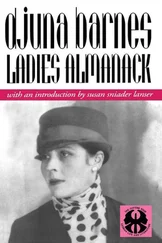The Baron acquiesced. ‘This quality of one sole condition, which was so much a part of the Baronin, was what drew me to her; a condition of being that she had not, at that time, even chosen, but a fluid sort of possession which gave me a feeling that I would not only be able to achieve immortality, but be free to choose my own kind.’
‘She was always holding God’s bag of tricks upside down,’ murmured the doctor.
‘Yet, if I tell the whole truth,’ the Baron continued, ‘the very abundance of what then appeared to me to be security, and which was, in reality, the most formless loss, gave me at the same time pleasure and a sense of terrible anxiety, which proved only too legitimate.’
The doctor lit a cigarette.
‘I took it’, the Baron went on, ‘for acquiescence, thus making my great mistake. She was really like those people who, coming unexpectedly into a room, silence the company because they are looking for someone who is not there.’ He knocked on the cab window, got down and paid. As they walked up the gravel path he went on: ‘What I particularly wanted to ask you was, why did she marry me? It has placed me in the dark, for the rest of my life.’
‘Take the case of the horse who knew too much,’ said the doctor, ‘looking between the branches in the morning, cypress or hemlock. She was in mourning for something taken away from her in a bombardment in the war—by the way she stood, that something lay between her hooves —she stirred no branch, though her hide was a river of sorrow; she was damned to her hocks, where the grass came waving up softly. Her eyelashes were gray-black, like the eyelashes of a nigger, and at her buttocks’ soft centre a pulse throbbed like a fiddle.’
The Baron, studying the menu, said, ‘The Petherbridge woman called on me.’
‘Glittering God,’ exclaimed the doctor putting the card down. ‘Has it gone as far as that? I shouldn’t have thought it.’
‘For the first moment’, the Baron continued, ‘I had no idea who she was. She had spared no pains to make her toilet rusty and grievous by an arrangement of veils and flat-toned dark material with flowers in it, cut plainly and extremely tight over a very small bust, and from the waist down gathered into bulky folds to conceal, no doubt, the widening parts of a woman well over forty. She seemed hurried. She spoke of you.’
The doctor put the menu on his knee. He raised his dark eyes with the bushy brows erect. ‘What did she say?’
The Baron answered, evidently unaware of the tender spot which his words touched: ‘Utter nonsense, to the effect that you are seen nearly every day in a certain nunnery, where you bow and pray and get free meals and attend cases which are, well, illegal.’
The Baron looked up. To his surprise he saw that the doctor had ‘deteriorated’ into that condition in which he had seen him in the street, when he thought himself unobserved.
In a loud voice the doctor said to the waiter, who was within an inch of his mouth: ‘Yes, and with oranges, oranges!’
The Baron continued hastily: ‘She gave me uneasiness because Guido was in the room at the time. She said that she had come to buy a painting—indeed, she offered me a very good price, which I was tempted to take (I’ve been doing a little dealing in old masters lately) for my stay in Vienna—but, as it turned out, she wanted the portrait of my grandmother, which on no account could I bring myself to part with. She had not been in the room five minutes before I sensed that the picture was an excuse, and that what she really wanted was something else. She began talking about the Baronin almost at once, though she mentioned no name at first, and I did not connect the story with my wife until the end. She said, “She is really quite extraordinary. I don’t understand her at all, though I must say I understand her better than other people.” She added this with a sort of false eagerness. She went on: “She always lets her pets die. She is so fond of them, and then she neglects them, the way that animals neglect themselves."
‘I did not like her to talk about this subject, as Guido is very sensitive to animals, and I could fancy what was going on in his mind; he is not like other children, not cruel, or savage. For this very reason he is called “strange". A child who is mature, in the sense that the heart is mature, is always, I have observed, called deficient.’ He gave his order and went on, ‘She then changed the subject—’
‘Tacking into the wind like a barge.’
‘Well, yes, to a story about a little girl she had staying with her (she called her Sylvia); the Baronin was also staying with her at the time, though I did not know that the young woman in question was the Baronin until later—well anyway it appears that this little girl Sylvia had “fallen in love” with the Baronin, and that she, the Baronin, kept waking her up all through the night to ask her if she “loved her".
‘During the holidays, while the child was away, Petherbridge became “anxious"—that is the way she put it—as to whether or not the “young lady had a heart".’
‘And brought the child back to prove it?’ interpolated the doctor, casting an eye over the fashionable crowd beginning to fill the room.
‘Exactly,’ said the Baron, ordering wine. ‘I made an exclamation, and she said quickly: “You can’t blame me, you can’t accuse me of using a child for my own ends!” Well, what else does it come to?’
‘That woman’, the doctor said, settling himself more comfortably in his chair, ‘would use the third-rising of a corpse for her ends. Though’, he added, ‘I must admit she is very generous with money.’
The Baron winced. ‘So I gathered from her over-large bid for the portrait. Well, she went on to say that, when they met, the Baronin had so obviously forgotten all about her, that the child was “ashamed.” She said “shame went all over her". She was already at the door when she spoke the last sentence. In fact, she conducted the whole scene as though my room were a stage that had been marked out, and at this point she must read her final lines.
‘"Robin,” she said, “Baronin Robin Volkbein, I wonder if she could be a relative."
‘For a whole minute I couldn’t move. When I turned around I saw that Guido was ill. I took him in my arms and spoke to him in German. He had often put questions to me about his mother and I had managed always to direct his mind to expect her.’
The doctor turned to the Baron with one of his sudden illuminations. ‘Exactly right. With Guido, you are in the presence of the “maladjusted". Wait! I am not using that word in the derogatory sense at all, in fact my great virtue is that I never use the derogatory in the usual sense. Pity is an intrusion when in the presence of a person who is a new position in an old account—which is your son. You can only pity those limited to their generation. Pity is timely, and dies with the person; a pitiable man is his own last tie. You have treated Guido well.’
The Baron paused, his knife bent down. He looked up. ‘Do you know, doctor, I find the thought of my son’s possible death at an early age a sort of dire happiness, because his death is the most awful, the most fearful thing that could befall me. The unendurable is the beginning of the curve of joy. I have become entangled in the shadow of a vast apprehension which is my son; he is the central point toward which life and death are spinning, the meeting of which my final design will be composed.’
‘And Robin?’ the doctor asked.
‘She is with me in Guido, they are inseparable and this time’, the Baron said, catching his monocle, ‘with her full consent.’ He leaned down and picked up his napkin. ‘The Baronin’, he continued, ‘always seemed to be looking for someone to tell her that she was innocent. Guido is very like her, except that he has his innocence. The Baronin was always searching in the wrong direction, until she met Nora Flood, who seemed, from what little I knew of her, to be a very honest woman, at least by intention.’
Читать дальше












